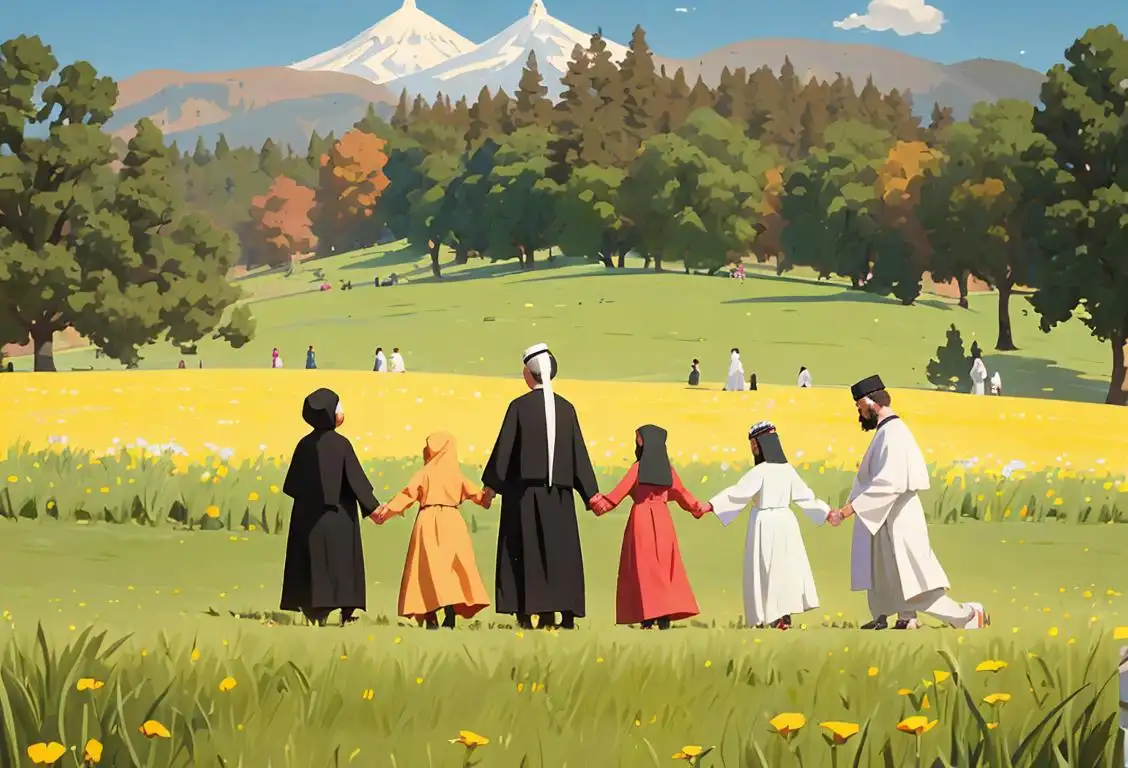National Religious Freedom Day

Quick, drop what you're doing and grab a freedom bell. It's time to jingle all the way to honor National Religious Freedom Day. See, back in the day, Thomas Jefferson thought it'd be a grand old idea to give folks freedom of religion. Fast forward a few centuries, and that decision is celebrated with gusto every 16th of January. Now let's not just jingle the bells, let's dive deep into the liberty-loving details, shall we?
When is Religious Freedom Day?
It's national religious freedom day on the 16th January.
A Touch of History
Now, wouldn't you like to know how National Religious Freedom Day popped up? Well, let us transport ourselves back to the tailend of the 18th century. Big man, Thomas Jefferson, thought, 'why should kings and queens tell people what god to believe in?' So, he set out on a revolutionizing plan and stirred up a new law - the Virginia Statute for Religious Freedom in 1786. This was no short of an all-you-can-eat buffet for the constitution writers, shaping the First Amendment's free exercise clause and laying bricks for the wall separating church and state.
Celebrating All Over the Web
Quick fast-forward to the astonishing year of 2021. Woah, the digital buzz about this day was ear-deafening. Our data showed around 7075 mentions of the day just about everywhere online. You could almost witness the virtual bell-ringing ceremony.
How Do People Celebrate?
Are you asking 'So, how does one celebrate National Religious Freedom Day?'. Well, lucky for you, there isn't one right way. You can just take a minute to appreciate the freedom we have or maybe learn about a religion different than yours. Even better, you could invite over some friends and break bread while discussing religion and epiphanies. It's all about respecting, understanding and embracing our freedom of choice in matters of faith.
History behind the term 'Religious Freedom'
1786
Virginia Statute for Religious Freedom
In 1786, the term 'religious freedom' gained prominence when Thomas Jefferson's Virginia Statute for Religious Freedom was passed. This landmark legislation, which became a foundation for the First Amendment to the United States Constitution, declared that 'no man shall be compelled to frequent or support any religious worship' and emphasized the importance of a person's right to choose their own beliefs without interference from the government or a dominant religion. The Virginia Statute for Religious Freedom set a precedent for religious tolerance and freedom in America.
1791
First Amendment to the United States Constitution
In 1791, the term 'religious freedom' gained further significance with the ratification of the First Amendment to the United States Constitution. This amendment, forming a part of the Bill of Rights, ensured that Congress shall make no law respecting an establishment of religion or prohibiting the free exercise thereof. The First Amendment enshrined protection for religious freedom in the highest law of the land, guaranteeing individuals the right to practice any religion or none at all, safeguarding the rights of religious minorities, and ensuring the separation of church and state.
1948
Universal Declaration of Human Rights
The year 1948 marked another key milestone for 'religious freedom' with the adoption of the Universal Declaration of Human Rights by the United Nations General Assembly. Article 18 of this declaration explicitly recognized religious freedom as a fundamental human right, stating that everyone has the right to freedom of thought, conscience, and religion. It emphasized the importance of protecting individuals from coercion or persecution based on their beliefs and encouraged nations to uphold religious freedom within their jurisdictions.
1998
International Religious Freedom Act
In 1998, the United States Congress passed the International Religious Freedom Act, signifying the growing global recognition of the importance of religious freedom. This legislation aimed to promote religious freedom as a priority in U.S. foreign policy and established the United States Commission on International Religious Freedom to monitor and report on religious freedom violations worldwide. The Act highlighted the commitment of the United States to protect and promote religious freedom both domestically and internationally.
2021
Continued Advocacy for Religious Freedom
The term 'religious freedom' remains central in global conversations and ongoing advocacy efforts. Various organizations, including nonprofits and human rights groups, continue to work towards safeguarding the rights of individuals to practice their religion freely and without persecution. Governments and policymakers around the world also strive to uphold and protect religious freedom, aiming to create inclusive societies that respect diverse belief systems.
Did you know?
Did you know that Thomas Jefferson featured the Virginia Statute for Religious Freedom on his gravestone, as one of his three greatest achievements, rather than his presidency? Now, that’s evidence of true love for religious liberty!Tagged
awareness fun rememberance history religious freedomFirst identified
15th January 2016Most mentioned on
16th January 2021Total mentions
7075Other days
Religious Freedom Day
Commemorative Day
Armed Forces Day
Flag Of Canada Day
Babe Ruth Day
Liberation Day
Random Acts Of Kindness Day
Purple Heart Day
Memorial Day
Ex Day








